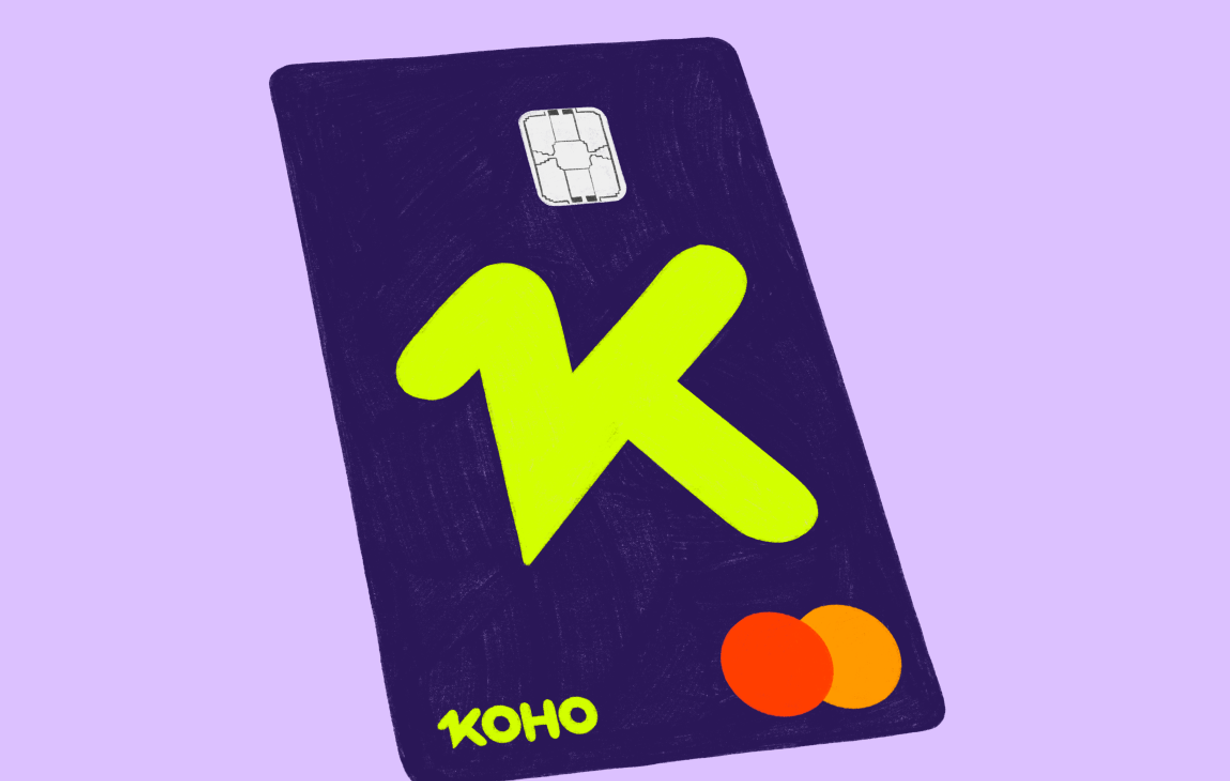Build credit without a credit card
It depends.
You should consider getting a credit card if you can pay it off in full every month, want to build credit, and need a card for things like online shopping, travel bookings, or deposits.
If you think you might carry a balance, miss payments, or overspend, it may be better to wait.
A Simple Option If You’re Not Ready: KOHO Essential
If you want card convenience without borrowing money, KOHO Essential can be a great alternative because it is a prepaid Mastercard®.
It has a low monthly plan fee that can be waived when you set up direct deposit or add +$1,000.
Use a prepaid Mastercard® for groceries, bills, subscriptions, and travel.
Grow your savings with a 2% interest savings rate on your entire balance.
Earn 1% cash back on groceries, eating & drinking, and transportation.
You can subscribe to Credit Building for $10/month, it's an affordable way to build your credit history.
Enjoy unlimited transactions and free e-transfers (never worry about fees when sending money to someone again).
Reasons a Credit Card Can Be a Good Idea
A credit card can help if you:
Want to build a credit history (when you pay on time)
Need a card for hotel deposits, car rentals, or travel bookings
Want purchase protection or travel insurance (depends on the card)
Can handle it responsibly without carrying debt
Reasons You Might Not Want a Credit Card Right Now
A credit card may not be the best choice if:
You are already struggling with debt
You often spend more than you planned
You might miss payments
You think you will carry a balance (interest can get expensive fast)
If You Do Get a Credit Card, Do This to Stay Safe
Simple rules that keep most people out of trouble:
Pay the full balance each month (not just the minimum)
Keep your spending low compared to your limit
Turn on payment reminders or auto-pay
Do not use cash advances
Only apply for cards you actually need

About the author
Sam Boyer spends, invests, budgets, and writes. He enjoys writing about things he wishes he’d learned earlier — like spending, investing, and budgeting. A journalist originally from New Zealand, Sam has written extensively about consumer affairs, insurance, travel, health, and crime.
Read more about this author